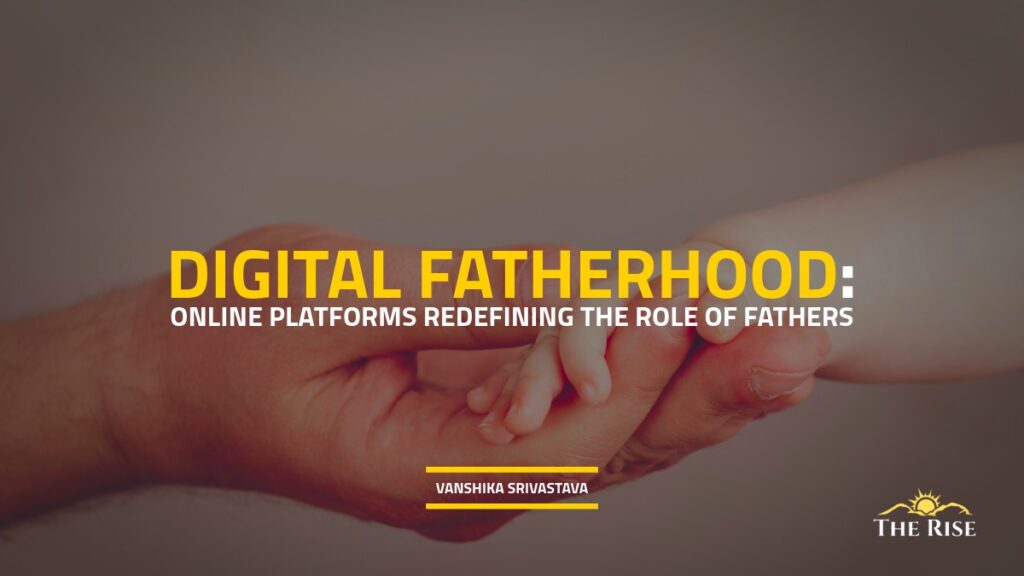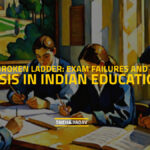In the digital age, fatherhood is a narrative of renewal and reinterpretation. By giving men the resources, support, and self-assurance to take on parental tasks, online platforms have enabled fathers to transcend conventional boundaries. Together, they represent a larger shift in fatherhood, where men are now more than just breadwinners; they are also communicators, nurturers, and involved members of the home.
Fatherhood is undergoing a significant transformation in our rapidly evolving digital age. No longer confined to the traditional roles of authority and financial provider, fathers are redefining themselves as co-parents who are emotionally present and active in the household. This transition has been fueled by a combination of technological advancements, shifting gender norms, and, in particular, the emergence of digital platforms.
Online parenting forums now provide fathers with the camaraderie, support, and direction that were often missing in previous generations. Juggling work, family, and household duties, fathers exchange stories, ask questions, and feel connected through Facebook groups, WhatsApp, Telegram, and global sites like Reddit.
These digital groups have become modern lifelines for parents, giving them information and support. Communicating candidly about domestic issues was uncommon in traditional society, and fathers frequently lacked role models for providing care. Today, platforms like Facebook, Reddit, Instagram, WhatsApp, and Telegram allow men to rethink their roles and share parenting tips. While Facebook hosts large forums with expert-led discussions, Reddit and Instagram provide global perspectives where men from various backgrounds swap experiences. Further, WhatsApp and Telegram groups facilitate rapid updates and resource sharing. In addition to learning novel strategies, men are gradually reshaping their identities through these platforms. They are embracing the role of nurturers and rejecting the assumption that they are distant providers.
“We are a little more involved with our children today compared to our fathers,” said Ramesh Srivastava, a 50-year-old Lucknow father of three.” मैं घर के कामों में भी हाथ बंटाता हूँ, बच्चों के साथ खाना बनाने में; इससे बंधन मजबूत हुआ है” (I help with housework too, I cook with the kids; this has strengthened our bond)” Although he acknowledges that generational attitude differences continue to be a problem, his help with domestic tasks has improved communication and fostered a good relationship with his kids.
Six months ago, Rajesh, a 38-year-old banker in Lucknow, learned of a WhatsApp fathers’ club at work and joined it. Earlier, he rarely discussed school anxieties or bedtime stories with his son. The group’s suggestions, such as listening to children, cooking with them, and helping with homework, made him reconsider his approach. Every Sunday, he began preparing simple meals with his kid and talking about his school day during the week. After a few weeks, Rajesh saw that his son was freely asking for help, smiling more, and opening up at dinner.
While Rajesh’s story shows how online groups can reshape fatherhood, not every parent turns to the internet for guidance. Father of two, Harish Kumar Sadhwani, who is also in his 50s, avoids participating in online parenting communities. He is aware of the changes, though. According to him, “fathers are much more involved in raising their kids nowadays.” Parenting, in his opinion, is about being present in the moment: “I play with my children, I talk to them.” That is how connections are formed. He favours creating genuine connections rather than “reel” ones, contending that presence, shared experiences, and deep dialogue are more important than carefully manicured social media posts.
Others echo this sense of ambivalence. Dr. Anil Kumar Singh, a 36-year-old father of a single child from Lucknow, says he now participates in Facebook parenting groups less frequently than he used to. Although he acknowledges that these platforms haven’t significantly changed his fundamental parenting approach, he continues to share caregiving responsibilities at home. In his view, fathers’ involvement is “about the same as earlier generations,” but he also points out that social support for fathers remains limited and that paternal roles deserve greater recognition.
Also Read: Driving Against the Odds: The Socio-Economic Realities of Women Taxi Drivers in Delhi
This blend of continuity and change is echoed in Indian research. A qualitative study of fathers in Kolkata revealed that while many do not cook regularly, some assist with meal preparation on weekends or contribute to school projects, believing such shared activities strengthen bonds with their children. Broadly, fathers admit they are more involved than previous generations, though to varying degrees.
These shifts also surface in the national data. According to statistics from the Time Use Survey (TUS), men’s participation in unpaid household labour rose from 43.9% in 2019 to 45.8% in 2024. Caregiving participation also increased slightly, reaching about 21.4% in 2024, though women continue to spend far more time on such tasks.
New lifestyle tools may be subtly accelerating this shift. Rapid-delivery apps like Blinkit and Zepto, though not captured in survey data, reduce the time spent on errands such as grocery runs. By saving time on these routine tasks, fathers may find more opportunities to participate in caregiving or household work. In this way, even small conveniences in daily life can indirectly encourage greater male involvement at home, supporting gradual but meaningful change.
Also Read: Right to Education Act and Disabled Students: The Unfinished Struggle for Equity
Digital networks have the potential to shape parenting in a more meaningful way. Dedicated fatherhood forums could ensure men’s voices are not lost in broader parenting conversations. Expert-led sessions on child psychology, digital safety, and household equity could equip men to better handle challenges. Such platforms can also promote cultural inclusivity, helping fathers balance tradition with modern ideals and reinforcing family identity. Mental health support for fathers juggling work and caregiving could also play a crucial role.
Yet, digital platforms alone cannot propel this change. Broader societal shifts are also necessary. Employers must acknowledge men as active parents by providing flexible work schedules and father-friendly leave policies. Fathers’ participation in cultural events, parent-teacher conferences, and caregiving responsibilities can be normalised by communities and schools. Public campaigns, by portraying dads as equal partners rather than passive assistants, can further dismantle stereotypes. Families, too, must adjust their expectations—seeing men as co-parents rather than supporting characters, so that children benefit from balanced, nurturing homes where both parents contribute equally to their upbringing.
Also Read: West Bengal Floods: How Women Become the Silent Backbone of Survival and Resilience
In the digital age, fatherhood is a narrative of renewal and reinterpretation. By giving men the resources, support, and self-assurance to take on parental tasks, digital platforms have enabled fathers to transcend conventional boundaries. Together, they represent the larger shift in fatherhood, where men are now more than just breadwinners; they are also communicators, nurturers, and involved members of the home.
Vanshika Srivastava is an intern under TRIP
Edited and Mentored by Sneha Yadav









































































